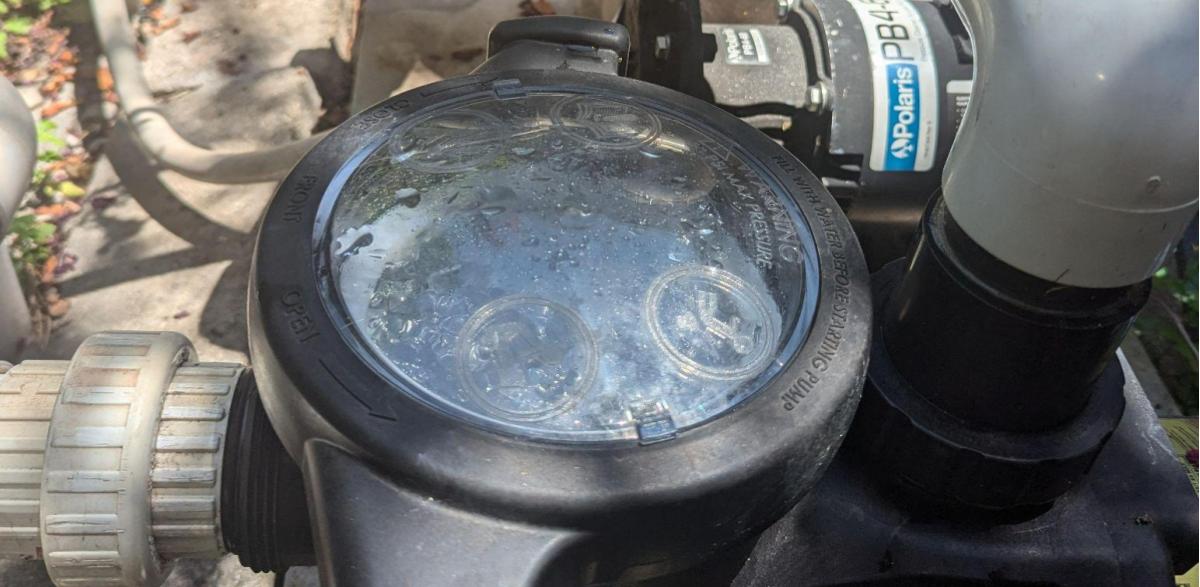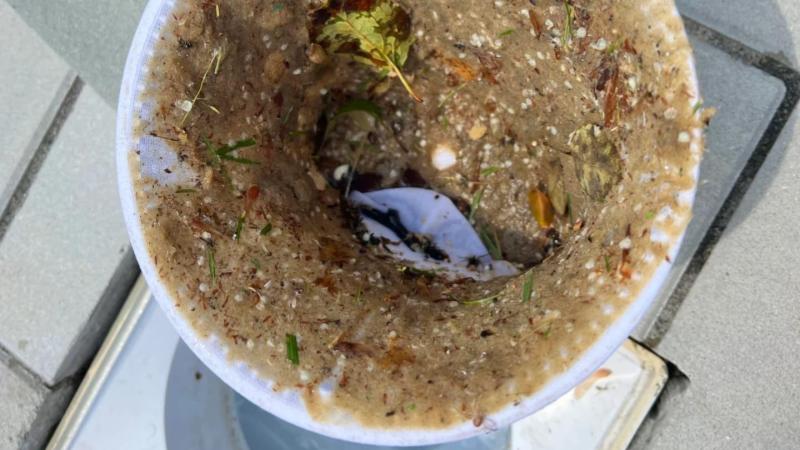Why is Your Pool Pump Making a Loud or High Pitched Noise? Solutions to Fix This Problem

A noisy pool pump can certainly be a frustrating experience. It can sound like a bunch of rocks banging through the pipes.
To make it a bit more complicated, there isn’t a singular reason why it may be happening. Understanding why your pump makes unusual sounds is the first step to solving the problem.
Common Causes of Pool Pump Noises
Pumps should operate quietly like you barely even notice that it is on.
Diagnosing and fixing the issue promptly can extend your pool pump’s life and ensure a much more peaceful swim!
Worn Out Bearings
One of the more common reasons behind a noisy pump is the bearings have worn out. These can be worn from age, exposure to water, or rust.
Bearings reduce the overall friction as the pump shaft spins. Once they start to deteriorate, it can sound like a pile of rocks stuck in the pump or even a loud pitch screeching sound.
Once bearings go, they have to be replaced. Unfortunately, there is no way lubricate or “fix” worn out bearings.
Clogged or Blocked Impeller
It’s not uncommon for debris to get through the skimmer baskets, through the pump, and caught at the pool filter.
Sometimes, leaves, twigs, or even small rocks can get stuck in the pump’s impeller. The impeller is a rotating blade that sucks the water from the pool and pushes it back in.
Cleaning it and removing any obstructions can resolve this issue. Make sure the pump is off at the breaker before you stick your hand anywhere near the pump!
Air Leaks Causing Cavitation
Sometimes air can get sucked into the pump, either from a leak or clogged pipe. This can cause the pump to cavitate.
Cavitation happens when there is a lack of water coming into the pump that gets replaced by air. This can force the pump to run dry, which can severely damage it if it does for a long period.
Air leaks in the suction line, pump lid, or O-ring can lead to cavitation. Inspect these components for cracks or worn seals, and replace damaged parts. A clear sign there might be a leak is if your pump has air bubbles and will not fully prime itself with water.
Ensuring a tight seal around the pump lid and lubricating the O-ring can also help prevent air leaks.
Water Flow Problems
Cavitation can also come from restricted water flow from clogs or low water levels.
Routinely cleaning the skimmer baskets and maintaining the correct water level will help the pump operate smoothly.

Check your filter for any issues as well. Open the air release valve if your pump has one to remove any air left in the filter.
Also, make sure your skimmer weir doors aren’t stuck!
Loose Parts
Vibrating or rattling sounds often come from loose internal components or external screws. Check the pump housing, bolts, and clamps to ensure everything is securely tightened.
Excessive vibration and noise might also be a result of improper installation. Pumps should be mounted on a stable, level surface to minimize vibrations.
Properly securing the pump can eliminate unnecessary vibrations and noise!
Electrical Issues
Humming or buzzing sounds could indicate electrical problems, such as a failing motor or capacitor.
Electrical repairs should be handled with caution. If you suspect an electrical issue, test the motor and capacitor or consult a professional to address the problem safely.
Age of the Pump
When things get older, they make more noise! Pool pumps are no different.
As pool pumps age, they can naturally become louder and less efficient. If your pump is old and making consistent noise, it may be time to replace it or upgrade its components.
Modern pumps are often quieter and more energy-efficient!
Preventive Maintenance Tips
Here are a few items to make part of your routine maintenance to ensure your pump is running as efficiently (and quietly) as possible:
- Regularly inspect and clean pump components, including the impeller, filters, and skimmer basket if necessary.
- Lubricate O-rings and seals seasonally to prevent leaks.
- Maintain proper water levels in your pool. A general rule of thumb is to keep water halfway up your skimmer mouth.
- Check for any possible leaks in the pool and piping. If you notice water draining quicker than usual, chances are you have a leak.
- If you have weir doors, routinely check if they can freely move up and down with the changing water levels without getting stuck. A couple of cannonballs into the pool should be more than enough to see if they work!
When to Call a Professional
Some pump problems require expertise beyond troubleshooting. Contact a professional if you can’t diagnose the issue, or you suspect something beyond your DIY capability.
Keep the Pool Noise to FUN Only!
The only noise coming from the pool should be your friends and family enjoying themselves!
If you hear odd noises from the pump, try and fix the problem as soon as possible before it becomes a bigger issue.
